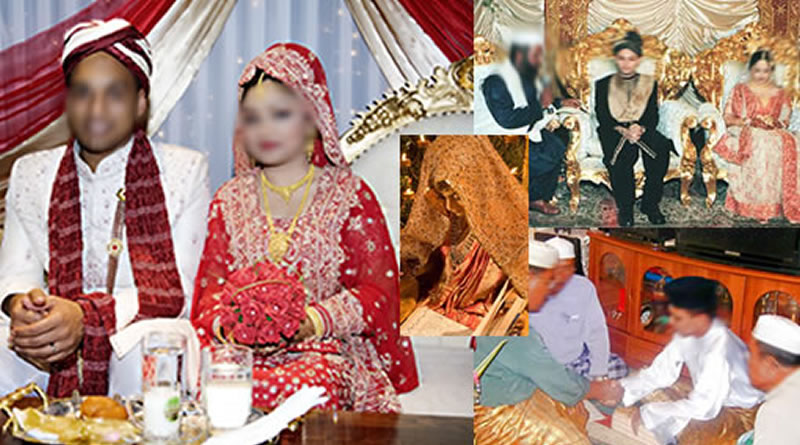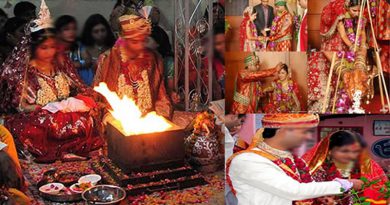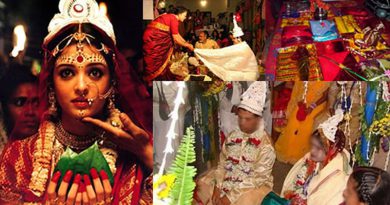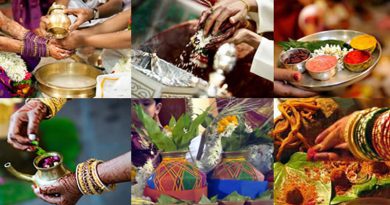Muslim Wedding and its traditional customs and rituals!
Muslim wedding is famous as ‘Nikah’ in Urdu. It is given great significance in the religion of Islam and is even compulsory for all.
GahoiMumbai.com is delighted to provide an insight to these Muslim Wedding traditions…
Muslim wedding is famous as ‘Nikah’ in Urdu. It is given great significance in the religion of Islam and is even compulsory for all. Though the marriage customs of Muslim wedding differ greatly from the Hindu religion, it significantly lays emphasis on the union of two souls. There are even varied rituals performed before and after the marriage, which lead to the completion of the ceremony.
Nikahnaama, the Urdu name for the Islamic marriage means a contract. The agreement between the bride and the groom is called Ijab-O-Qubul. There are witnesses and Mehr – the dowry which is agreed upon. The contract of the Muslim marriage is recorded in black and white. The Muslim cleric is called Quazi who oversees the proceedings of the marriage. The Baraat, Nikaah Ceremony, Sermons and Nikahnaama are significant aspects of these rituals.
A Muslim Marriage is celebrated in the presence of the guardians of both bride and grooms. The law abiders and relatives are also present to be witness to these proceedings. Like all other religious communities the Muslim marriages have their own distinctiveness. At the time of wedding, the groom has to pay a certain amount of money to the bride. Apart from these there are other aspects which make it more exciting.
A Muslim Wedding is a bond that is created between a man and a woman in the presence of the guardians, law abiders and relatives who act as witnesses. At this time a specific amount of money is decided by the two parties which are to be paid by the groom to the bride at the time of wedding. Though the bride may not be present at the time of forming the contract of the Muslim Wedding, it is compulsory to get the documentation done for future use.
Pre Wedding Rituals in Muslim Wedding:
A pre Wedding Ritual – Istikhara:
The first marriage ritual is the Istikhara, wherein the religious head takes consent form Allah to perform the wedding.
A pre Wedding Ritual – Imam-Zamin:
After Istikhara is done, the groom’s mother visits the bride’s house with sweets and Imam-Zamin, a silver or gold coin wrapped in silken cloth. It is tied by her onto the upper portion of the girl’s hand. This is called Imam-Zamin ceremony.
A pre Wedding Ritual – Magni:
The next is Magni, wherein the groom’s family members visit the bride’s house with sweets and fruits. This is reciprocated by the bride’s family as well. Nowadays, the couple even exchanges rings.
A pre Wedding Ritual – Manjha: After Magni, the Manjha ceremony takes place, in which the bride is dressed in yellow clothes and turmeric paste is applied on her body. After this, the bride is not supposed to step out of the house.
A pre Wedding Ritual – Mehndi:
Mehndi Ceremony is the next ceremony, which is held just before the wedding. During this ceremony, the hands and feet of the bride are adorned with henna designs.
A pre Wedding Ritual – Sanchaq:
After Mehndi, the Sanchaq ritual takes place, wherein the groom’s family sends clothes and jewelries for the bride, to be worn at Nikah and Chauthi.
Wedding Rituals and Traditions in Muslim Wedding:
On the main marriage day, the Baraat leaves for the bride’s house. On the marriage venue, they are given a hearty welcome and the groom enjoys a glass of sherbet with his brother-in-law. Soon after this, the Nikah is commenced. There are two religious heads present at the place, representing the two parties. The amount of Mehar, a compulsory amount of money to be given to the bride by the groom’s family is also decided. After this, the Maulavi asks the bride three times, whether she accepts the concerned person as her husband, with settled the amount of the Mehar.
After her permission, the groom is asked three times, whether he accepts the concerned woman as his wife, with the decided amount of Mehar. After his consent, the Nikahnama is signed by the pair. This is followed by the recital of Khutba, a religious discourse. Blessings are poured upon the bride and the groom for a prosperous wedded life. Following an extravagant dinner, the couple is seated fact to face each other, with their heads covered by a dupatta. The Holy Quran and a mirror placed are placed between them, through which they are allowed to see each other for the first time. This is known as AarsiMushaf.
Post Wedding Rituals in Muslim Wedding:
A post wedding ritual – Rukhsat:
After the marriage rituals are over, the bride is bid farewell. This is called the Rukhsat ceremony. On reaching the groom’s house, his mother holds the holy Quran over the bride’s head as she enters the house.
A post wedding ritual – Valimah:
Next is the Valimah ceremony, which is a splendid feast given by the groom’s guardians.
A post wedding ritual – Chauthi:
Afterward, the Chauthi custom is observed, as per which the couple visits her parental home for the first time after wedding. They are given a lavish feast and presents by the bride’s parents.
Special Features of Muslim Wedding:
The most significant of Muslim marriage rituals in India is Nikaah and the prayers. There are many other rituals involved in the Nikaah ceremony of Muslims. The Maulvi is the religious representative who conducts the actual ceremony. The Walis are the parents of the bride and the groom and their part in the ceremony is important. The Maulvi recites lines from the holy Quran and then the Ijab-O-Qubul happens.
In the Muslim marriage customs, upon the consent of the bride and the marriage is legally over. The Mehr or the dowry is another significant ritual and is decided by mutual agreement and the Mehr has to be paid to the bride by the groom.
If you need any help regarding Muslim Wedding ceremony or Muslim Wedding Management, please leave your message about your dates, ideas and budget plans at our Wedding Help Centre.
All this information is free and only for informational purpose.




